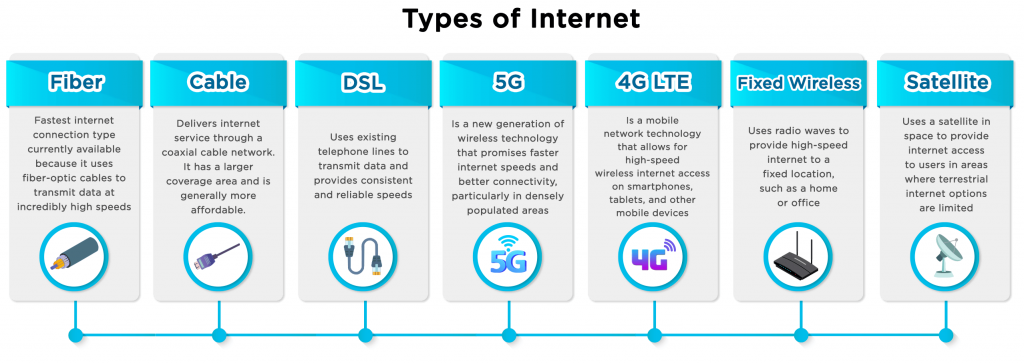If you’ve ever connected to the internet, you’ve used an ISP. But what is ISP, exactly? In this guide, you’ll learn the meaning of ISP, how it works behind the scenes, and why choosing the right provider matters for speed, security, and privacy.Table of contents
- What is ISP? A simple definition
- How an ISP works
- Types of ISPs
- Examples of ISPs around the world
- How to choose the right internet provider
- Why ISPs matter for security and privacy
- FAQs about ISPs
What is ISP? A simple definition
An ISP, or Internet Service Provider, is a company that gives you access to the internet. Whenever you browse, stream, or send a message, your data goes through your provider. Therefore, asking “what is ISP” really means asking about the gateway that connects your devices to the global network.

How an ISP works
Your provider offers the infrastructure for your connection. For example, it may install fiber, DSL, or cable lines to your home. Additionally, it manages IP addresses, routing, and DNS services. As a result, when you ask “what is ISP and how does it work?”, the answer involves both hardware and software coordination.
- Connection setup: Modems or routers establish a link to the servers.
- IP address assignment: Each device gets an address to communicate online.
- Data routing: The network ensures your traffic reaches websites and services quickly.
- Bandwidth management: They allocate speed limits and prioritize traffic during congestion.
Types of ISPs
Not all providers are the same. In fact, different types serve different markets and needs.
- Dial-up providers: Legacy connections using phone lines; mostly obsolete.
- DSL and Cable: Common for homes; deliver internet through phone or TV lines.
- Fiber-optic: Offer the fastest speeds, using advanced fiber cables.
- Mobile networks: Provide data through 4G and 5G mobile services.
- Satellite: Cover rural areas via satellites, but with higher latency.

Examples of ISPs around the world
When people ask “what is ISP”, they often want real-world examples. Some well-known providers include:
- United States: Comcast Xfinity, AT&T, Verizon, Spectrum.
- United Kingdom: BT, Virgin Media, Sky Broadband, TalkTalk.
- India: Jio, Airtel, BSNL.
- Morocco: Maroc Telecom, Inwi, Orange.
For official regulatory lists, see FCC (United States) and Ofcom (United Kingdom). Additionally, Wikipedia maintains an extensive list of providers worldwide.
How to choose the right internet provider
When deciding on a provider, consider the following factors:
- Speed: Choose fiber if available; otherwise, cable or DSL may suffice.
- Reliability: Check local reviews; not all ISPs perform equally well.
- Cost: Balance monthly price against speed and reliability.
- Data caps: Some providers restrict usage after a certain limit.
- Customer support: Quality service matters when issues arise.

Meanwhile, remember that ISPs also handle your DNS requests. If you value privacy, you may want to change your DNS provider manually for extra control.
Why ISPs matter for security and privacy
Your ISP can see the websites you visit unless you use encryption (HTTPS or VPN). Therefore, they play a critical role in privacy and security. For example, in some countries, ISPs are required to log user data for government compliance. Consequently, many users choose VPNs to protect themselves.
For related iPhone privacy tips, see our guides on how to unhide apps on iPhone and how to unblock a number on iPhone.
FAQs about ISPs
What does ISP stand for?
ISP stands for Internet Service Provider, the company that gives you internet access.
Is my mobile operator also an ISP?
Yes. Mobile providers like Verizon, Airtel, and Inwi act as ISPs when they deliver internet through 4G or 5G networks.
Can I have more than one ISP at home?
Yes, if multiple providers are available in your area. Some households use two ISPs for redundancy.
Why is my ISP slowing down my internet?
ISPs may throttle speed during network congestion or after you exceed a data cap. Therefore, always check your plan details.
Related: How to See Deleted SMS on iPhone | How to Unhide Apps on iPhone | How to Unblock a Number on iPhone
Further reading: FCC: Internet Service Providers | Ofcom: Broadband and Internet | Wikipedia: Internet Service Provider
Conclusion: Understanding what is ISP helps you make better choices about your internet. From speed and reliability to privacy and cost, your provider plays a vital role in how you experience the web. By comparing types, examples, and security concerns, you’ll be able to pick the right service confidently.
